Our Q2 report provides the latest updates on COVID-19 impacts and other key trends in wealth management.

Multi-family office Alvarium has announced the launch of a trust brokerage business, dubbed Alvarium Securities, that will provide corporate advice, distribution and research services to corporate clients. The new business is going to be headed by ex-Peel Hunt broker Mark Thompson and JP Morgan investment specialist Eddie Nissen, and will give investors an opportunity to meet, analyse, trade and participate in the growth of some of the leading investment trusts, including REITs, in the market.
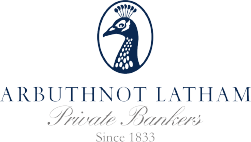
Private banking profits nearly halved last year at Arbuthnot Latham from £4.6m (2018) to £2.9m (2019), due to a major revision of its planning charging structure and lower lending as clients had a reduced appetite for credit due to Brexit uncertainty. At group level though, the company reported pre-tax profit of £7m in 2019 (up from £6.8m in 2018), as assets climbed 12% from £985m to £1.1bn. Profitability in the private client division was hit by a mid-year decision to abandon annual charges within its nascent planning division and instead ‘concentrate on providing event based financial advice and thus charge clients for specific advice on a transactional basis’.

Bank of Montreal Private Bank Asia has announced a partnership with multi-family office Raffles Financial Group in Asia, to provide clients in the region with a comprehensive and customized suite of corporate finance, investment, and private banking solutions. Raffles will work with Bank of Montreal Private Bank Asia to identify clients who require advice and management of their family trusts, custodian and private banking accounts.

Bank of Singapore, the private banking arm of OCBC, is focusing resources on its fast-growing family office business, by expanding its investment products for this segment and targeting clients outside of Asia too, especially Middle East and Europe. Despite the bank’s global AUM declining to $104 billion in the year to March from $108 billion a year ago, due to the market downturn, assets of the family office segment rose 20%.
The Greater China business, which includes clients from Hong Kong, the mainland and Taiwan, recorded a 10% increase in AUM year on year in the first quarter, and growth is expected to continue. Hong Kong CEO Derrick Tan recently commented in an interview that the city will continue to serve as a portal to China, particularly for wealth management. Bank of Singapore continues to invest in Hong Kong. The bank is also evaluating setting up an onshore presence in China which could be done with local partnerships.

Banque Bonhôte has bought Zurich-based private bank Private Client Partners (PCP) from M.M. Warburg & Co. PCP’s CHF 1.9 billion of assets under management and team of 15 will transfer to Banque Bonhôte, while the subsidiary bank will maintain its PCP name. Bank Private Client Partners was founded in 1998 by Andreas Bodenmann, who will continue to play an active role with clients, but the subsidiary will now be run by Beat Widmer.

Barclays has been granted a licence to offer private banking clients a full range of services in South Africa, providing access to investment products, wealth management services and wider solutions of the Barclays Group. The bank will now be able to proactively reach out to and meet individuals in South Africa, offering the advisory and discretionary products and services provided by the private bank. Amol Prabhu, newly appointed Africa Market Head for the Private Bank will have regulatory accountability for the Africa businesses.
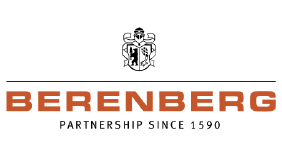
Berenberg, Germany’s oldest private bank, has teamed up with Berlin-based fintech company Moonfare to offer private equity solutions to clients; who will have digital access to top-tier private equity funds via Moonfare’s digital private assets investment platform. Through the partnership, Berenberg is now able to add top-tier private equity funds to its portfolio recommendations when they match the customer’s investment goals and strategy; and clients will benefit from access to high return investments and have the opportunity to further diversify their portfolios with this asset class. The minimum investment is €200,000, making it accessible to a large number of private banking customers.

BNP Paribas has announced the exit from domestic wealth management in India in order to “focus on areas where its global footprint and diversified business strengths allow it to provide clients with more value-added services”. The arm manages about $14.5 billion in India, and $98.3 billion in the overall Asia Pacific region. The bank commented that it was seeking redeployment opportunities for affected staff, and that the existing clients will be transferred to wholly owned subsidiary Sharekhan that provides brokerage and investment services. BNP Paribas reaffirmed the commitment to its wealth management growth strategy in Asia.
The bank sold its wealth management trust business in Singapore to trust firm Zedra, a global provider of active wealth, corporate and fund solutions. The sale includes 35 employees and BNP will continue to work with Zedra in the future as a preferred external partner for trust services.

Bordier has announced that it is changing the banks’ legal set-up, from the model of the unlimited liability partnership to a limited-share model, mentioning that the move represents “the benefits of being Swiss private bankers, in the traditional meaning of the term, combined with the advantages of a public limited company, or “société anonyme”. It will not go as far as incorporating, and the partners will still be liable with their own money. Bordier will remain the only Genevan house with the
“privé” model.
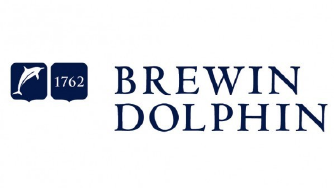
Brewin Dolphin has completed the integration of Investec Ireland following its acquisition last year for €44m, for assets of €2.9bn. The merger more than doubled Brewin’s assets in the country to €4.4bn, making it the third largest wealth manager in Ireland. Eddie Clarke, who previously headed Investec’s Irish wealth business, has taken over as CEO from Matt Minch who has retired.
The wealth manager reported a fall of overall funds under management to £41.4 billion in the first half of the year, down from £45 billion the previous year. Excluding funds from acquisitions, total funds decreased by 14%. Total income for the period increased by 8.3% to £175.8 million compared to £162.3 million previously. Excluding income from acquisitions, income increased by 2.6%.

Brooks Macdonald has entered into a binding agreement to acquire the Channel Islands wealth management and funds business of Lloyds Bank International and its £1bn of discretionary assets. In total, the deal is expected to cost up to £9.63 million, which will be paid in cash from Brooks Macdonald’s existing financial resources. Completion is expected to take place in the fourth quarter of 2020 subject to regulatory approval. The two parties have also entered in a further agreement to introduce relevant services to each other's clients.
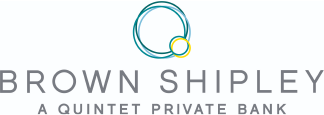
Brown Shipley, a Quintet Private Bank, has completed the integration of NW Brown & Co, with two former NW Brown offices in Cambridge and Norwich rebranding as Brown Shipley, as part of a growth plan to expand across UK regions. The acquisition added about £1bn in assets, increasing Brown Shipley’s AuM to £9bn.
The firm recently made more than 20 staff redundant, including a mixture of client-facing and back office employees, as it prepared to transition to a ‘new operating model’. The bank is strategically aligning with parent company Quintet as the focus now is upon leveraging the broader group environment they’re working with.

Spanish private bank and credit institution CaixaBank has started to offer private banking services in Luxembourg, after receiving regulatory approval. The move is part of the bank’s strategic plan revealed in 2018 to expand outside of its home country. It offers private banking services to individuals who hold liquid assets of at least €500,000, and will work closely with the already established CaixaBank Asset Management Luxembourg, the group’s fund management arm. It targets assets of €2bn by 2022.
The bank has recently launched its Smart Allocation portfolios for Private Banking and Premier Banking customers, a new discretionary management solution that offers dynamic management with further control of volatility through the application of a quantitative model. It allows exposure to markets while mitigating the effect of the extremes of equity valuation cycles.

Citi Private Bank recently announced the creation of the Direct Private Investments business, dedicated to distributing private deals and deepening wallet share with this client segment. The business is led by Itay Blasenheim out of New York, and it will work with the recently created Private Capital Group to identify opportunities for family offices and private investment company clients to actively invest in direct private deals. Citi Private Capital Group was created to provide clients with institutional access and opportunities in both the public and private markets. It is part of Citi’s Institutional Clients Group and services private investment companies, family offices and pools of private capital.

Commonwealth Bank of Australia (CBA) has entered into an agreement to sell a 55% interest in Colonial First State to global investment firm KKR. Colonial First State was established in 1988 and is one of Australia’s leading wealth management groups, managing more than A$130m in assets. The transaction implies a total valuation for Colonial First State on a 100% basis of $3.3 billion, which will result in CBA receiving cash proceeds of approximately $1.7 billion from KKR. The move reflects CBA’s strategy to focus on its core banking businesses.

UK private bank Coutts has set targets for a 25% reduction in carbon emissions in its funds and portfolios by the end of 2021. Having already achieved a 23% reduction this year, it is aiming to increase that to 50% by 2030. According to the bank, Coutts tackles sustainability differently than much of the wealth management market by embedding ESG-thinking across the entire investment process rather than offering specific products.

Credit Suisse has agreed to buy a stake in Brazilian digital broker Modalmais of up to 35%, in a bid to tap into a fast-growing digital market in Brazil. Modalmais has nearly 1 million clients with 10 billion reais ($1.90 billion) in assets under custody. Credit Suisse plans to tap into these clients to sell its wealth management services and products, as well as being able to offer more digital products to existing clients in the country.
The bank is understood to have frozen its original plans for a Miami wealth hub. It was reportedly evaluating a return to the US last year, four years after it closed its domestic business in the country. The plan was to build a new base employing up to 30 people, mostly servicing Latin American HNW & UHNW clients.
Credit Suisse CEO Thomas Gottstein recently announced that the bank will strive to cut costs in the medium term, as many processes can be streamlined as the bank continues to automate the business. He also reiterated that the bank continues to invest resources in growth, especially in the business with very wealthy customers as well as the Asian business.

Deutsche Bank has created a new international private banking unit, melding the wealth management and private banking and commercial business international units into the new entity serving a total of 3.4 million customers. It brings together clients from Germany, the rest of Europe, Americas, Asia and the Middle East and Africa, along with private clients and small and medium-sized enterprises in Italy, Spain, Belgium and India. It will have around €250 billion ($284.3 billion) of assets under management and a combined revenue of approximately €3 billion. Claudio de Sanctis, most recently Global Head of Wealth Management, heads up the new International Private Bank and is also Chief Executive for Europe, Middle East and Africa.
The bank aims to increase its volume of ESG financing plus its portfolio of sustainable investments under management to over €200bn in total by 2025, also committing to be entirely reliant on renewable energy by then. The minimum volume of €200bn includes loans granted by 2025 and bonds placed by Deutsche Bank during this period. It also includes sustainable assets managed by the Private Bank as of the end of 2025.
Deutsche Bank’s CEO Christian Sewing has resumed plans to cut 18,000 jobs that had been put on hold during coronavirus, while also asking its top managers to join the executive committee in foregoing a month’s pay to reduce expenses. The measure was voluntary and in the spirit of leading by example.

Dubai’s Emirates NBD is accelerating plans to cut private banking jobs due to the impact of the Covid-19 pandemic. As many as 800 jobs (10% of the total workforce) are now expected to be made redundant; building on the already existing plans to cut workforce due to the digital transformation efforts of the bank. Emirates NBD is expected to invest US$272 million in digital technology over the next four years and aims to move all divisions onto one IT platform by the end of this year, reducing costs and letting go of unnecessary back office roles.

Falcon Private Bank has announced it will cease its banking activity next year and will exit private banking. The bank had restructured and repositioned the business three years ago, following the 1MDB, but it never recovered from the scandal. It is understood that the bank is in advanced negotiations to sell and transfer its client portfolios, front office staff and subsidiaries to another Swiss private bank.

Goldman Sachs has reported plans to buy Folio, a boutique wealth management custodian and technology company headquartered in Virginia (US) with 160 employees and $11 billion in assets under custody for registered investment advisers (RIAs). The acquisition would improve the services Goldman already provides to RIAs through its asset management business, by giving it access to Folio’s technology, and the bank will earn fees from being the custodian of assets for other firms. The execution, clearing and custody business would be incorporated into Goldman’s global markets division, and Folio’s RIAs firms would join Goldman’s consumer and investment management division. This is part of Goldman’s plans of divest from global markets including reinvent itself as a trusted wealth manager with leading digital capabilities.

Edinburgh-based Hampden & Co posted good results for 2019. The private bank grew income by 36% (to £8.7 million) in 2019, while client deposits grew 53% to £409.4m and client lending increased by 54% to £203.8m (including £31m from the acquisition and transfer of Smith & Williamson’s loan book at the end of last year). The bank expanded into the mortgage intermediary market, particularly in relation to complex mortgages for wealthy individuals in the United Kingdom.
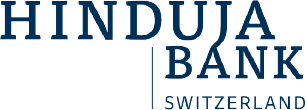
The Cayman Islands Monetary Authority (Cima) has recently revoked the licence of Swiss private bank Hinduja. Hinduja Bank & Trust (Cayman) is not able to operate in the Cayman Islands since 22 May 2020 due to failure of appointing appropriate directors and meeting anti-money laundering protocols. This follows a previous warning sent to the bank in January.

In February HSBC combined its retail, wealth management and private banking divisions to form a new Wealth and Personal Banking unit managing approximately $1.4trn, as part of a global restructuring. Nearly half of the assets are in Asia.
The new unit is set to place a big focus on the family office segment in Asia and internationally in the months to come, and it expects to grow client assets in the family office unit at a double-digit rate. It also continues to invest in its HNW segment; having recently launched an enhanced version of its Wealth Portfolio Intelligence Service (WPIS) to help its HNW “Jade” clients gain more in-depth understanding of their portfolios. WPIS was launched last year covering unit trusts only, and it will add bonds, equities, currencies, cash and time deposits; covering all major elements of a multi-asset wealth portfolio. This comes as HSBC is seeing increased demand for wealth management services among its affluent customers.
HSBC Private Bank announced that it has raised a record USD1.3 billion of private client funding for alternative investments in Asia from April 2019 to April 2020. Funds were raised across a broad range of product solutions including hedge funds, private equity, private credit and USD350 million in a private real estate investment trust (REIT) strategy. In China, the bank has become the first international bank to roll out Qualified Domestic Limited Partnership (QDLP) investments, expanding overseas investment options for its Chinese HNW clients under a partnership with China International Fund Management (51% owned by JP Morgan Asset Management). The QDLP scheme facilitates investments in offshore traditional and alternative investments by allowing qualified foreign asset managers to raise money in Chinese currency from qualified individual and institutional investors in mainland China to invest in alternative assets abroad.
The bank, that had put on hold its job cuts during the first months of the covid-19 pandemic, has restarted the overhaul strategy to cut 35,000 jobs, $4.5 billion in costs and $100 billion in risk-weighted assets. As a result of coronavirus, the overhaul could be deepened and is believed to potentially include more job cuts or a possible sale of its U.S. business, its retail network in France and operations in smaller non-strategic markets. Singapore will not be affected by cuts this year, and the bank

Swiss private bank Ihag announced plans to cut up to 20 jobs across all areas because of the strategic concentration on the home market and outflows from customer funds. This represents about one-sixth of the total employee count (113) in Zurich. The bank commented; “It should be emphasised that we are a capital-strong bank with a solid customer base. The measures that have been introduced aim to adapt to the new strategy. Unfortunately, a downsizing cannot be avoided”.
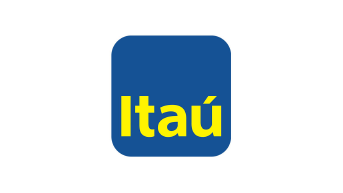
Itaú Private Bank International opted for the technology of Swiss software firm Temenos to gain efficiencies across its international private banking business in Switzerland and the US. The new platform will allow the bank to access a single wealth platform with functionalities covering from back-office processing to front-office portfolio management.
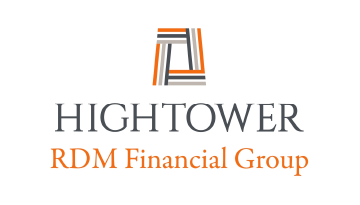
Hightower Advisors, the Chicago-based consolidator of RIAs, has made a strategic investment in Wellspring Associates, a boutique wealth planning and consulting firm specializing in estate, tax, philanthropic and legacy planning for UHNW clients. Wellspring has offices in Atlanta and Dallas, serving families with $50+ million in assets. Wellspring will now have access to HNW families with assets of $5+ million and the firm will be a resource for Hightower advisory businesses seeking to provide wealth planning and transfer solutions to their clients. As of 2019-end, Hightower's assets under administration were approximately $76.8 billion and its assets under management were $57.4 billion. The firm offers wealth management businesses a capital-rich partner and a customizable suite of services to help them accelerate growth, as well as an integrated platform, including technology, compliance, accounting, payroll, human resources, investment research/due diligence and marketing services.
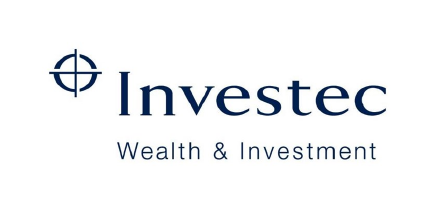
Investec continued to work through its planned business overhaul during 2019. According to its annual results for the year to the end of March, restructuring costs amounted to £94.1m, including the closure of failed robo Click & Invest, alongside its Hong Kong private equity department, and the restructure of its Irish division (its Irish wealth business was sold to Brewin Dolphin and generated £19.7m). The bank saved £711m from a series of cost-cutting measures, but group adjusted operating profit for the period was down 16.8% which was partially attributed to the covid-19 consequences. Wealth & Investment’s AUM was down 19.2% due to market volatility and the Irish sale.

Bank J. Safra Sarasin recently launched a new healthcare fund, the JSS Sustainable Equity – Future Health fund. The fund invests in companies whose products and services contribute to the improvement of health outcomes, with a strong focus on innovation and prevention across all healthcare segments. It also invests in leading companies in the areas of nutrition, fitness, health technology and home health infrastructure.

Julius Baer posted good growth and profits in Germany, a notoriously difficult market for wealth management companies in the post Swiss banking secrecy era. While most Swiss banks struggled over the past years to bring their offices to profitability with many pulling out, Julius Baer has ten offices in the country and it posted pre-tax profits of €4 million last year, bolstered by a 20 percent climb in revenue and a successful year in acquiring new clients - 700 new relationships were won in 2019, which is roughly the average since 2011. The bank will focus both on growth, by hiring a target 20 private bankers this year; as well as lowering Julius Baer's cost-income ratio in Germany in the future, corresponding to CEO Philipp Rickenbacher’s promise to focus more on profitability rather than winning new money.

Kingswood has completed the acquisition of Sterling Trust Financial Consulting Limited (Sterling Trust), an independent financial adviser headquartered in Hull, Yorkshire and with offices in Darlington, Newcastle, Sheffield & York. Sterling Trust provides advice to about 5,000 clients, including individuals and corporates, and currently employs 48 people including 22 IFAs advising and/or managing £1.2 billion in assets. It was acquired for a cash consideration of £17.75 million. Kingswood Group CEO Gary Wilder commented that the business has a robust pipeline of further acquisition opportunities in the UK and US that it is reviewing; and there are three transactions under exclusive due diligence in the UK only.

Lombard Odier Group announced an investment and strategic partnership with Taurus, a Swiss provider of digital infrastructure for banks, asset managers and stock exchanges specialised in blockchain and digital asset solutions. Lombard Odier runs its own proprietary banking technology to which other wealth management institutions rely on, and it continues to invest in the platform. With this partnership, the bank aims to remain at the forefront of technological developments in the field of blockchain and digital assets, allowing them to enhance its offering for clients and third parties using the platform.
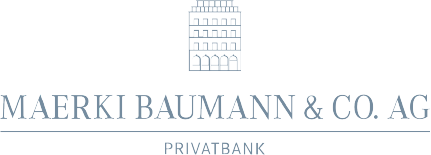
Swiss private bank Maerki Baumann launched a new crypto trading service to be able to offer trading and custody of digital assets and tokens to its clients. It is starting with bitcoin (BTC), bitcoin cash (BCH), XRP (XRP), litecoin (LTC) and ether (ETH), but it will gradually expand its list of supported assets based on client feedback and future developments. The bank is investing in digital assets to be able to attract new clients, especially younger prospects.

Chief executive officer of Mattioli Woods, Ian Mattioli, agreed to take an ongoing reduction of 60% of his basic salary from July, after reducing it to zero from April until the end of June in response to the covid-19 crisis. It also reported that executive directors' salaries were being temporarily reduced from July after all other directors agreed to reduce their basic salary or fees by 50% until the end of June. The firm also confirmed that it will not pay any bonuses for the current financial year, with funds being used to address the impact of coronavirus.

Italian bank Mediobanca and US fund manager Russell Investments are partnering to launch their third private markets fund dedicated to Mediobanca’s Italian private banking clients. The fund looks to exploit new opportunities that arise from the market dislocation caused by the Covid-19 pandemic, targeting the secondary market, distressed strategies, and opportunities in dislocated industrial sectors in North America, Europe, and Asia. It will be distributed until the end of September by Mediobanca and will be managed by Russell Investments.

Merrill is giving its advisors an extension in their targets due to the coronavirus pandemic, providing teams with an additional six months, until January 2021, to meet the threshold necessary to continue receiving a pay boost for all team members based on the performance of a team’s top producer. The pay boost is contingent on 30% of each team member’s clients using at least three of the following services from Merrill or parent Bank of America: loans, trust, banking or investment advisory.

Morgan Stanley is expanding further in Canada with the launch of a wealth management division in the country. It is partnering on the initiative with Toronto-based Canaccord Genuity, which will serve as its “local platform provider”. The bank plans to offer full-service financial advisors, “virtual” advisors, a discount brokerage, and online investment management to wealth management
clients in Canada. The plans are subject to regulatory approval.
Morgan Stanley CEO James Gorman told employees that despite the disruption caused by covid-19 “there will not be a reduction in force at Morgan Stanley in 2020. Aside from a performance issue or a breach of the Code of Conduct, jobs are secure.”

London-based Owl Family Office has split its business into two separate entities focused on international and domestic clients, as its founders Adam Wethered and William Drake retire from the company. The international family office advisory business, which incorporates all of Owl’s international business which oversees complex family groups requiring multi-jurisdictional solutions, has been named Delfin Private Office and run by managing Partner Annamaria Koerling. Its domestic investment consultancy division is maintaining the Owl Private Office name and is led by asset management veteran Andrew Wimble.

Pictet Wealth Management has reported plans to grow its business with independent asset managers in Switzerland, a lucrative segment for private banks as some 2,500 IAMs exist in Switzerland alone, managing an estimated $500 billion. While bank is already established covering this segment from Geneva, it has room for growth in Zurich which will be a focus for new business. Pictet wants to differentiate itself from other players by offering 24-hour trading, a versatile booking platform, simplified account opening, and including sustainable investment criteria into portfolios.
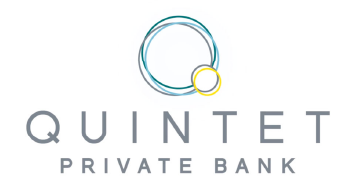
Quintet reported group revenues of €443.1 million in 2019, in line with the previous year, while assets rose to €81.5 billion as of December 2019, up from €72.6 billion. Group expenses rose to €470.5 million due to the large investments the firm is making in people, products, a new brand and geographic expansions. The bank also completed two strategic acquisitions, including UK-based NW Brown, now integrated in UK’s Brown Shipley, and Zurich-headquartered Bank am Bellevue in Switzerland. It also plans to expand to the Nordic region subject to final regulatory approval.

Rathbones completed the acquisition of Barclays Wealth’s personal injury and court of protection business, which will see approximately £450m of funds under management transferred to the investment management unit of Rathbones, as well as 10 team members and a book of 600 clients. As of 2019-end, the investment management arm of Rathbones had £43 billion of funds under management and administration, up 11.7% from the previous year, while its unit trust business had £7.4 billion, up 32.1%.

Family-owned REYL Group has launched a new IT project to develop a new and fully digital platform through which to serve the mass affluent client segment. This segment normally consists of individuals with investable assets of CHF 100,000 - CHF 1 million and it is the most interested in digital tools for their investments. The client group represents over 2.6 million people in Switzerland with approximately CHF 660 billion in assets.
The bank's 2019 full-year profit rose by one-third to CHF 8.3 million, and income rose by 9% to CHF 91.1 million. Total assets rose 20% to CHF 13.6 billion, of which CHF 1.2 billion were new client money.

Financial advisor Sanlam closed three UK regional offices in a bid to cut costs. The Bath, Kirkby Lonsdale and Andoversford offices will merge into bigger branches with staff either relocating or working from home on a permanent basis, reducing the number of offices to 14 in the United Kingdom. Other regional offices will also be reviewed as their leases expire. The firm recently announced that despite these strategic measures it will continue to acquire teams and businesses in line with its aggressive expansion strategy.

Schroders has completed the migration of £75 billion worth of mandates from Scottish Widows and parent Lloyds Banking Group into Schroders Personal Wealth, the new financial planning joint venture led by Peter Hetherington. The migration of portfolios was carried out in seven tranches from September 2019 to March 2020 and has successfully concluded, marking the largest asset transfer in the UK. Schroders Personal Wealth has opened eleven offices across the country, in Birmingham, Bristol, Cambridge, Cardiff, Edinburgh, Exeter, Guildford, Manchester, Leeds, London and Oxford. Each hub is headed by a regional director who has the freedom to shape their own business, while the London head office and the Leeds operation center provide the central support functions. Schroders Personal Wealth is 50.1% owned by Lloyds and 49.9% by Schroders.
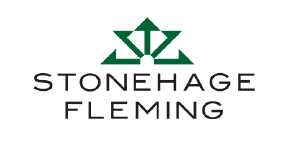
Multi-family office Stonehage Fleming has reached an agreement to acquire the investment management activities of London-based Cavendish Asset Management, a firm initially established to manage the Lewis family's assets that consequently expanded to look after institutional and UHNW professional clients. The acquisition includes about £1 billion of assets and four members of the Cavendish senior fund management team who will also transfer to Stonehage Fleming.

Geneva-based Bank Syz reorganised the company last year, with the view to focus on four core markets: Switzerland (both Geneva and Zurich), Latin America, Africa (especially South Africa through its office in Johannesburg), and the Middle East (through its presence in Turkey). It closed the Bahamas operations and sold the business through a management buyout, while it will retain its Miami office and use it as a platform for business in Latin America. The bank is also opening a new representative office in Istanbul, to be closer to existing Turkish clients and gain a better understanding of the market conditions and investment opportunities in the region.

Tilney announced a merger with Smith & Williamson last year, but the deal was subsequently not approved by the FCA due to the level of debt being proposed. The two companies have now announced a revised transaction structure for the merger, with private equity investor Warburg Pincus injecting £275 million in equity to save the bid. Funds advised by Warburg Pincus will co-invest in the combined business alongside funds advised by Permira and the new structure will result in a significant reduction in external debt for the combined group, lower ongoing financing costs and an improved regulatory capital position. The merged entity will be called Tilney Smith & Williamson and will be responsible for approximately £44 billion in assets under management and, on a pro forma basis, will generate approximately £530 million of revenue.
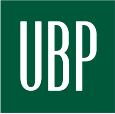
Union Bancaire Privée is expanding its sovereign emerging market fixed income offering with the launch of a new frontier market strategy, taking advantage of the attractive return potential offered by investments in frontier markets, due to risk premiums overestimating default probabilities and underestimating recovery values as well as to the window of opportunity offered by the recent market sell-off. The UBAM – Emerging Markets Frontier Bond is available to investors in Austria, Belgium, Denmark, Finland, France, Germany, Italy, Luxembourg, the Netherlands, Norway, Spain, Sweden, Singapore and the United Kingdom.
UBP has announced a strategic partnership with Australian asset manager Bell Asset Management (Bell AM), in the form of a two-way distribution partnership to tap into each other's markets. UBP’s funds, including credit, fixed income and alternatives strategies will be offered to Bell Asset Management clients, while Bell's global small and mid-cap fund will be offered to UBP's network in Europe, the Middle East and Asia. UBP's new office in Australia, headed by Olivier Marion, will support the partnership.

UBS announced the creation of a new global financing team that will span across divisions under one group to serve clients faster, led by Remi Mennesson who is joining the bank in November from Credit Suisse. The new team will align employees working in global wealth management, investment bank financing and risk management under one umbrella, creating efficiency for any type of lending.
In Europe and Asia the bank is launching regional teams to bring extra private market deals to its wealthy clients, which will combine wealth management and investment banking specialists. Giuseppe De Filippo will lead distribution teams for Europe, the Middle East, Africa and Switzerland, and Enrico Mattoli will oversee distribution efforts in the Asia Pacific, following the creation of a similar group in the US.
The bank is also starting a team overlooking a new venture capital arm looking to make investments and hold stakes of $10m-$20m in FinTech companies for at least five years. It will invest in three categories: client engagement, investing and financing platforms, and improving underlying operations of the bank; and it is already currently screening potential investments. “UBS wants to further engage with and support FinTech firms,” commented Mike Dargan, UBS’s global group technology head. “The new venture investment portfolio is a next step to accelerate our innovation and digitisation efforts.”
UBS is looking to use technology to make inroads in the Chinese wealth market too, where it is planning to launch a digital wealth platform upon being granted the Chinese digital banking licence it has applied for and needs to execute the project. After its launch in China, where UBS is targeting the growing middle class, the new platform could be launched globally.
In the US, the bank is teaming up with Rockefeller Money. It has invested $440 million of clients’ money into a Rockefeller sustainable fund via its own $10 billion fully-sustainable multi-asset portfolio, providing exposure to the incremental positive change on ESG topics in the hopes of reaping financial performance from the improvements. It is one of the first major outside investment pushes.

Vontobel is planning to expand its business with Italian clients this year, led by Gianpiero Galasso who recently joined the bank from Credit Suisse as Head of Wealth Management Southern & Western Switzerland, Latin Europe and Middle East. Vontobel is planning to open a new advisory office in Milan to offer Italian clients on-site advice regulated under Italian law. Up until now, Italian wealth management clients have been managed from Zurich, Locarno and Lugano.

Liechtenstein-based VP Bank is buying Oehman Bank's private banking business in Luxembourg. Oehman is a family-controlled financial institution headquartered in Sweden that owns a private banking unit in Luxembourg. The acquisition includes €760 million in assets, mainly from Scandinavian entrepreneurs and investors, and will also include eleven employees of Oehman Bank.

Zurich local lender Zuercher Kantonalbank (ZKB) is going ahead with a dividend plan agreed before the pandemic hit Europe, unlike Swiss giants UBS and Credit Suisse. ZKB will pay the full CHF 500 million in dividends to its canton and municipalities, despite the coronavirus, and it commented that the plan doesn't represent a risk for the bank. The payout is more than 41% higher than 2018 (CHF 358 million) and it coincides with commemorations of ZKB's 150th anniversary.




